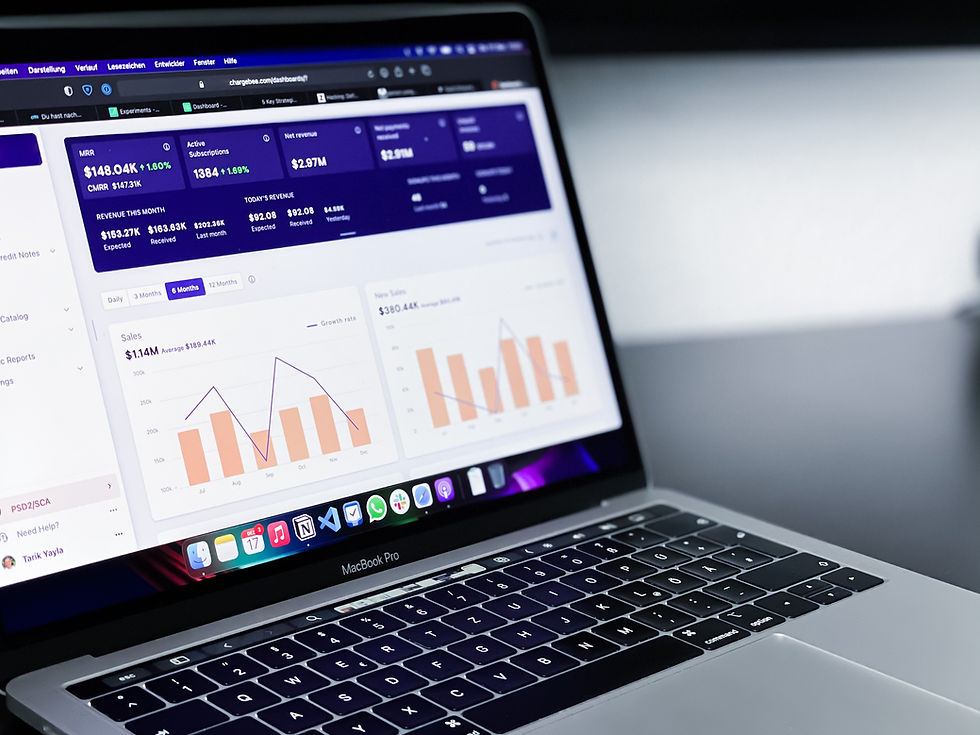Future Trends in Marketing Analytics
- ankit60harris
- Aug 28, 2024
- 3 min read

The field of marketing analytics is rapidly evolving, driven by advancements in technology and data science. One of the most significant trends is the increasing adoption of artificial intelligence (AI) and machine learning (ML) techniques. These technologies are enabling marketers to analyze vast amounts of data, identify patterns, and make more accurate predictions about customer behavior and campaign performance.
Predictive analytics, powered by AI and ML algorithms, is becoming increasingly important in marketing. By analyzing historical data and identifying patterns, predictive models can forecast future trends, customer preferences, and potential outcomes of marketing campaigns. This allows marketers to make data-driven decisions, optimize their strategies, and allocate resources more effectively.
Another emerging trend is the integration of marketing analytics with other business functions, such as sales, customer service, and product development. By breaking down silos and sharing data across departments, organizations can gain a holistic view of their customers and operations, enabling more effective decision-making and collaboration.
Real-time analytics is also gaining traction, as marketers seek to respond quickly to changing market conditions and customer behavior. With the ability to analyze data as it is generated, marketers can make immediate adjustments to their campaigns, optimize content, and deliver personalized experiences to customers.
Furthermore, the rise of big data and the Internet of Things (IoT) is providing marketers with new sources of data, such as sensor data, social media data, and location-based data. By leveraging these diverse data sources, marketers can gain deeper insights into customer behavior and preferences, enabling more targeted and effective marketing strategies.
As marketing analytics continues to evolve, it is essential for organizations to invest in the right tools, talent, and processes to stay ahead of the curve. By embracing emerging trends and technologies, marketers can gain a competitive edge, drive better results, and deliver exceptional customer experiences.
In Looking into the future
Marketing analytics has become an indispensable tool for businesses in the digital age. By leveraging data-driven insights, companies can make informed decisions, optimize their marketing efforts, and drive growth. The key takeaways from this comprehensive guide are:
Define Clear Goals and KPIs: Establishing specific, measurable goals and key performance indicators (KPIs) is crucial for effective marketing analytics. These metrics will serve as a roadmap for tracking progress and measuring success.
Embrace Data-Driven Decision Making: Marketing analytics empowers businesses to make data-driven decisions rather than relying on gut instincts or assumptions. By analyzing data, companies can identify trends, understand customer behavior, and allocate resources more effectively.
Optimize and Iterate: Marketing analytics is an ongoing process. Continuously monitoring and analyzing data allows businesses to optimize their campaigns, refine their strategies, and iterate based on insights derived from the data.
Invest in the Right Tools and Talent: Implementing marketing analytics requires the right tools, platforms, and skilled professionals. Investing in robust analytics solutions and building a team with data analysis expertise is essential for success.
Integrate Analytics Across Functions: Marketing analytics should not operate in a silo. Integrating analytics with other business functions, such as sales, customer service, and product development, enables a holistic understanding of the customer journey and drives organizational alignment.
In the rapidly evolving digital landscape, embracing marketing analytics is no longer an option but a necessity for businesses to stay competitive and thrive. By harnessing the power of data, companies can make informed decisions, optimize their marketing efforts, and deliver personalized experiences that resonate with their target audience. As technology continues to advance, the role of marketing analytics will only become more crucial, enabling businesses to navigate the complexities of the digital world and drive sustainable growth.



